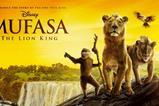Ben Lindsay’s new book about race informs and inspires and is well worth buying for youth and children, Nesu Kwaramba says why

The death of George Floyd during the Covid-19 pandemic brought the enduring reality of racism to the forefront of the global community in a striking and new way. Not that racism had been non-existent up until now, but rather that Floyd served to highlight – in a glaring way – the inadequacy of international legislation and anti-racism movements over the years to smother the ancient monster. Ever since, conversations about racial justice have suffused global society – whilst the prevalence of racism today is ceaselessly supported by fresh swathes of evidence the world over.
At home, in the UK, we have been inundated with narratives that illustrate that racism is resident amongst us – whether it is within the world of politics, as Diane Abbott can tell you; or in the world of sport, where the glory of the lionesses was juxtaposed with a fear of racial violence that forced Jess Carter to feel ‘relieved’ that a white teammate had also missed a penalty at the Euros. In fact, so pressing is this issue, that efforts to address racism and its highly politicised history are gathering momentum within our finest educational establishments and also within the church – where, to be sure, racism has also reared its ugly head.
This is a must read for all those working and interacting with young people, from parents to church leaders and youth workers – not least young people!
Against this weighty backdrop, and the growing tide of willingness to confront the past and present of racism, never has there been a greater need to equip the leaders of the next generation – our young people – with tools of resilience and advocacy to face and fight this foe. Ben Lindsay’s We Need to Talk About Race …Christian Faith and Racial Justice: A Young Person’s Guide (2025) is one such tool. This is a must read for all those working and interacting with young people, from parents to church leaders and youth workers – not least young people!
Ben’s Book is a powerful and life-changing resource that (i) informs young people about the history and nature of racism; (ii) invites introspection from young people to discern their own biases and beliefs about racism; and (iii) inspires young people to make a difference. Let me take each one in turn.
Information
Ben does a phenomenal job of educating young people about some of the watershed moments in the development of racism as a tool of subjugation, whilst also illustrating its present-day manifestations. In clear and concise fashion – along with fascinating pictures and other data, Ben indicates that racism is scientifically indefensible and illustrates how it was used as a classification system to justify colonialism and slavery (which were essential for securing certain privileges for European imperialists at the expense of other people groups). Relatedly, Ben exposes the prominent role that Britain, as a nation, played in perpetuating the transatlantic slave trade. In this connection, Ben insightfully provides evidence to support his compelling argument that – notwithstanding the past – Christianity is not a ‘white man’s religion’ (p.87) and explains why such a misconception is harmful to the gospel. Moreover, Ben scrutinizes world history and biblical history in a way that conveys, so convincingly, that racism – regardless of your race or ethnicity – negatively affects us all.
this book serves to equip young people with vital information about the historical development of racism in a way that enables them to appreciate its contentious and divisive nature, its present-day embeddedness in today’s society and how antithetical it is to the realisation of a better world
Whilst illuminating the relevant history of the past, Ben communicates that racism is still ubiquitous today. With some vulnerable and captivating testimonies from young and old, women and men, and some influential industry leaders (like footballer Eberechi Eze, musician CalledOut Music and Dan Blyth – head of Youth Alpha), Ben reveals that racism can be experienced by anyone. The poignant stories serve to educate young people about the modern-day existence of racism and the devastating impact it can have on direct victims and even those who have experienced it vicariously. The testimonies also clearly emphasize that racism can happen anywhere, and in any sphere of life – whether school, work, social gatherings, on the street, or on the train. For young victims, the book is a source of healing by identification – providing them with a sense of ‘I’m not the only one…this has happened to other people … there’s not something inherently wrong with me …. “I am valid, worthy, enough” (p. 18).’
Ultimately, this book serves to equip young people with vital information about the historical development of racism in a way that enables them to appreciate its contentious and divisive nature, its present-day embeddedness in today’s society and how antithetical it is to the realisation of a better world.
Introspection
One of the factors that makes this book so life-changing is its ability to provoke readers to consider their own biases and beliefs about racism. Ben provides a piercing spectrum diagram at the very beginning of the book, as well as visual representations of concepts like ‘allyship’ (p.120) that help readers to self-scrutinize – to decipher to what extent they are actively working to promote a racism-free society. As a black person myself – and thus part of a group that has historically (and even presently) been on the receiving end of racism – I can tell you I found myself profoundly challenged to do more to confront and overcome my own biases and some of my (erroneous) beliefs about racism.
Readers are not given the liberty of just reading some interesting information, but all readers will be provoked to action
However, the introspection doesn’t stop there. Ben provides other opportunities for readers to think critically about what they believe, providing persuasive biblical and non-biblical information that reveals that ‘God shows no favouritism’ (p.4). The introspection is made yet even more fruitful by the invitation for readers to reflect on the information the book provides, and the arguments it posits, by the provision of a few questions at the end of sections – as well as invitations to pray about the matters discussed. Readers are not given the liberty of just reading some interesting information, but all readers will be provoked to action – and Ben does not leave readers uninspired in this regard.
Read more:
The Greatest Story Ever Told: How Bear Grylls’ new book can help young people rediscover the wonder of the gospel
The new book that helps Christian teenagers navigate an uncertain world
Inspiration
Beyond informing young people and persuading them to consider their own attitudes towards racism, Ben offers some creative and practical suggestions to help and equip us all in combating racism today. From simple decisions like refusing to laugh at racist jokes, to the creation of an anti-racism poster to be displayed within a school, to considering ways to express diversity within church contexts – and more, profound and actionable advocacy strategies are littered throughout the book. All who read the book, and young people in particular, will not be left clueless as to how they can play a role in creating an inclusive society – on a macro or micro level.
Get a copy!
If I could summarize in three words: ‘get a copy!’ Get a copy for your young people, and for yourself. Not only is the book easily navigable, but Ben’s writing style is extremely accessible and welcoming to even those who wouldn’t identify as ‘book worms.’ Yet the real treasure of the book is its ability to bring healing to victims of racism, persuade us that we all have a role to play in tackling racism and convince us that the God of the Bible is yearning for us all to remove this veil that is limiting the revelation of his glory in the personhood of everyone created in his image.
































